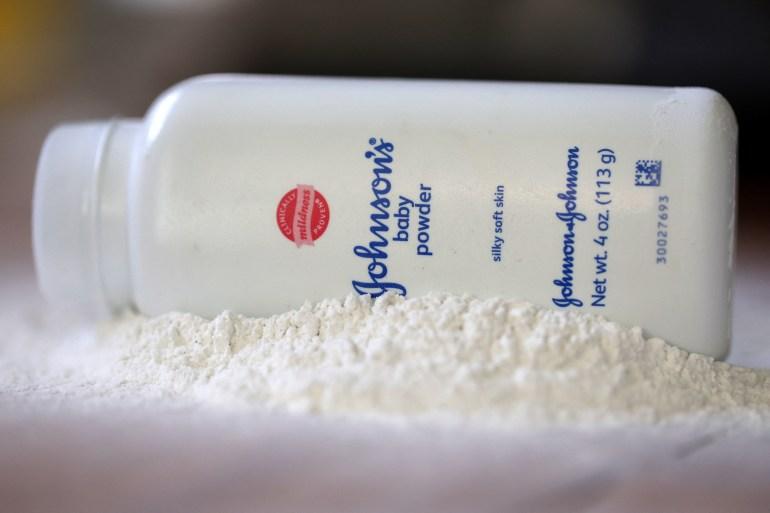Source: ALJAZEERA
ALJAZEERA MEDIA NETWORK

The pharmaceutical company resolves allegations it misled consumers about the safety of its talc-based powder products.
Johnson & Johnson has agreed to a $700 million payment to settle lawsuits in the US, where it was accused of misleading consumers about the safety of its talc-based powder products.
The payout resolves an investigation by over 40 US states into the marketing of baby powder and other talc-based items that were found to contain traces of carcinogenic asbestos.
“Selling cosmetic products that contain hazardous substances to communities is not only illegal but also heartless,” New York Attorney General Letitia James stated on Tuesday.
“While no amount of money can undo the suffering caused by Johnson & Johnson’s talc-laden products, today families can take some solace in knowing that the firm is being held to account for the harm it caused, and its dangerous products will no longer be available in New York. Those who exploit our communities, damage their health, and break our laws will face the full power of my office.”
According to the settlement terms, the company, headquartered in New Brunswick, New Jersey, will permanently cease the production, marketing, and sale of all body products that include talcum powder.
J&J, which removed its talc-based powders from North American stores in 2020 and ended their global sale last year, has not admitted to any wrongdoing and insists its products do not cause cancer.
This settlement does not address the tens of thousands of lawsuits from consumers alleging that these products caused cancer.
Last month, the company announced plans to move forward with a $6.475 billion settlement to settle 99.75% of the remaining lawsuits in the US.
Investigations by both The New York Times and Reuters revealed that J&J executives had hidden concerns for decades that their baby powder products might contain asbestos.
A study published in the Journal of the American Medical Association in 2020 found no statistical correlation between the use of powder in the genital area and ovarian cancer in women. However, researchers warned that the study, which included data from 250,000 women in the US, may not have been large enough to detect a potential minor increase in risk.
Your email address will not be published. Required fields are marked *